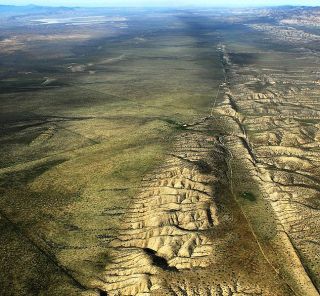Resilience
The Psychology of Surviving an Earthquake
What is the best coping strategy to remain resilient in the face of cataclysm?
Posted February 13, 2023 Reviewed by Jessica Schrader
Key points
- Natural disasters like earthquakes can create severe mental as well as physical disability.
- There are a variety of emotional responses but these can be ameliorated by coping responses that victims mount.
- Trying to establish a sense of control over apparently random disasters appears to be a deep human need.
The BBC News website is now reporting that the death toll from the Turkey-Syria earthquake, at the time of writing, has passed 33,000, exceeding the more than 17,000 killed when a similar quake hit northwest Turkey in 1999. The BBC also reports that as Syria has not apparently posted any recent updates on their death toll, the eventual total of fatalities is likely to be much higher.

Research on survivors has uncovered significant psychological "after-shocks" following earthquakes; even 50 years after one major quake in Greece, the disaster was still leaving a major mark on mental health.
According to the authors of this study, published in The Journal of Nervous and Mental Disease, the western coast of Greece is notorious for its elevated seismic activity.
David Oglesby, professor of geophysics at the University of California Riverside, points out that the earthquake in Turkey and Syria was produced by the same type of geological fault underlying most of California. The San Andreas fault is also by no means the only fault in California.
From the 9th through the 12th of August 1953, a series of earthquakes with a magnitude ranging from 6.3 to 7.5 on the Richter scale struck the island of Cephallonia, across the western coast of Greece.
This study investigated a sample of 121 survivors.
Almost 80% of the victims acknowledged a strong overall impact of the earthquake on their lives, even 50 years later, and almost all of them suffered intense recollection of the event at its anniversary. Young adults (17-25 years), as well as women, were the most vulnerable groups for the development of emotional problems.
The authors speculate that one reason older people may have exhibited more resilience is that as this was an area of high seismic activity, the elder population already had experienced various earthquakes of a lower magnitude, which might have psychologically prepared them for exposure to subsequent catastrophic events.
A key coping strategy is to have been through it before.
This suggests earthquakes in areas prone to seismic activity may produce a population hardened to and therefore more resilient to this kind of disaster.
Another study, entitled, "'I laugh and say I have ‘Earthquake Brain!': Resident Responses To The September 2010 Christchurch Earthquake," quoted one survivor as explaining, "Every aftershock in the first three weeks or so was strong and I was in an almost permanent state of anxiety and fear of it being another huge quake and could not sleep or relax at all."
On Sept. 4, 2010, at 4:34 a.m., a 7.1 magnitude earthquake hit the city of Christchurch in New Zealand. Thousands of aftershocks of varying intensity were recorded in the following months.
The authors of this study argued that aftershocks are a continuous reminder of the initial earthquake, often eliciting flashbacks and recollections of the event, bringing to the surface all the physiological reactions experienced during the initial earthquake.
Participants also indicated anxiety around being in unfamiliar places or buildings during aftershocks: One explained, "You didn’t enter a room or building without first casing it to see where you would go if a big one hit." Another said, "I do have a brief moment of apprehension if one hits when I am in an unfamiliar building."
Before an earthquake, individuals may hold a firm belief in the strength and stability of buildings. Witnessing collapse during natural disasters causes people to re-evaluate this belief and leads to anxiety around being in unfamiliar places, impacting their ability to function in their everyday life. Separation from family members during aftershocks also caused anxiety. Participants wanted to know where family members were at all times. Another survivor explained, "I am now nervy and always need to know where both of my children are at any given moment."
"Every bang or drumming noise […] now sounds like an earthquake coming so you’re constantly on edge," was another account from a survivor.
However, is unexpected personal growth also a possible result from trauma?
Many participants in this study also discussed how the earthquake changed the way they see the world, but in a positive way: "The earthquake [brought] us closer together as a family and put the important things in life (family, love, caring for each other) in top priority. [It] literally shook us up and opened our eyes to the fact that life is short and precious."
Many residents reported that this "shakeup" led to a sweeping change in priorities, bringing to the fore the importance of family and "loved ones" over material possessions; "Family has become more important than money—how important is money vs. a life that helps others?"
A transformation in priorities is common for many who have experienced traumatic events. A closer and deeper relationship with others also frequently follows trauma, one of the positive outcomes of such disasters.
Community engagement following an earthquake plays an important role in emotional recovery. The authors argue that such engagement gives people a sense of being active participants in the rebuilding of their community, along with restoring a feeling of control and purpose.
Participants in this study commented that the earthquake gave the residents of Christchurch a "common experience" that brought them together and created a sense of connection that did not exist before.
Research confirms that religious affiliation in the Canterbury region of New Zealand increased significantly following the earthquakes.
Maybe religion is uniquely capable of bringing comfort, as people seek God in order to derive meaning from cataclysm.
A study of survivors of two major natural disasters—Hurricane Katrina in 2005 and the Chilean earthquake in 2010—found that describing the disasters as an act of God became extremely common. The degree to which survivors encountered extreme hardship—unpredictable, disruptive, and uncontrollable experiences—predicted explanations of the events as an act of God.
The authors of this study argue that when people experience random or uncontrollable events, they seek to transform these into something that has meaning or purpose. One way is to find an agency that can be held responsible for such events.
For example, survivors of traumatic life events often preserve a sense of control by blaming themselves for causing the events.
The authors conclude that faith offers a powerful coping response in the face of natural disasters, as religion helps sustain the belief that one’s life has order, meaning, and purpose in the face of random catastrophe.
A newborn baby was found still tied by her umbilical cord to her mother, who had died under the rubble of a home hit by the recent earthquake in northern Syria. All the baby’s family had been killed, yet the rescued baby is now recovering alive and well in the local hospital intensive care unit, and has been named Aya, meaning "sign from God."
References
Turkey earthquake rescue continues almost 150 hours on: 'You are a miracle.' https://www.bbc.co.uk/news/world-middle-east-64617245
The Psychological Impact of a Catastrophic Earthquake A Retrospective Study 50 Years After the Event Helen Lazaratou, Thomas Paparrigopoulos, Gerassimos Galanos, Constantinos Psarros, Dimitris Dikeos, and Constantin Soldatos, The Journal of Nervous and Mental Disease Volume 196, Number 4, April 2008.
"I laugh and say I have ‘Earthquake Brain!’": Resident responses to the September 2010 Christchurch Earthquake. Casey Rowney, Panteá Farvid , Chris G. Sibley, New Zealand Journal of Psychology Vol. 43, No. 2, July 2014 • 11.
Faith after an earthquake: A longitudinal study of religion and perceived health before and after the 2011 Christchurch New Zealand earthquake. Sibley, C. G., & Bulbulia, J. (2012). PLoS ONE, 7, e49648.
Who Explains Hurricane Katrina and the Chilean Earthquake as an Act of God? The Experience of Extreme Hardship Predicts Religious Meaning-Making Nicole M. Stephens, Stephanie A. Fryberg, Hazel Rose Markus and MarYam G. Hamedani Journal of Cross-Cultural Psychology published online 20 August 2012 Volume 44, Issue 4 https://doi.org/10.1177/002202211245433.
California will inevitably shake like Turkey A fault like the San Andreas produced Sunday’s earthquake. JULES BERNSTEIN February 7, 2023. https://news.ucr.edu/articles/2023/02/07/california-will-inevitably-sha…




